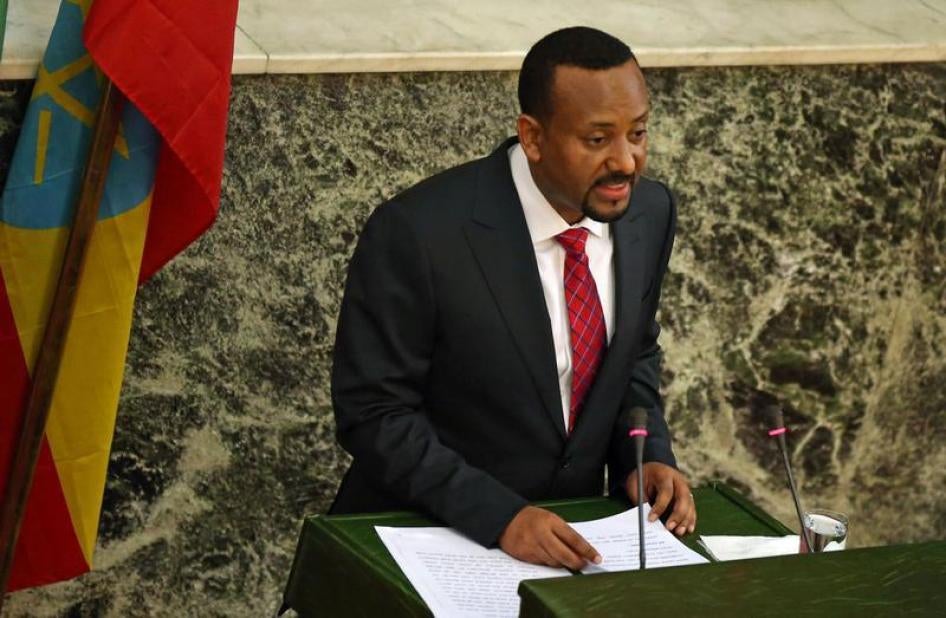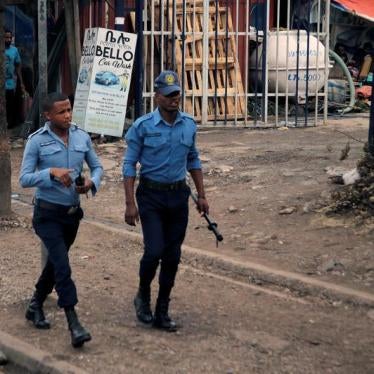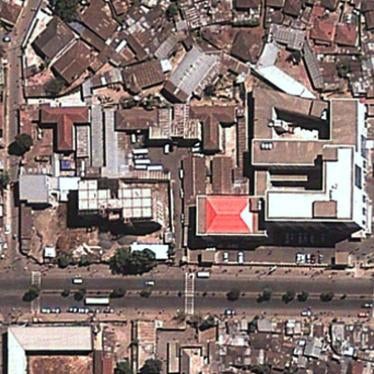Late one evening in 2015, local police arrested 28-year-old Abdi [not his real name] and over the next two weeks beat him every night. Prison guards routinely humiliated him - stripping him naked, tying a jerry can filled with water to his testicles and parading him in front of fellow prisoners. Sixteen months later, his family paid a bribe to secure his release. To this day he doesn’t know why he was detained.
He fled Ethiopia to seek medical treatment for his physical injuries. When I interviewed him in March he told me he has difficulty urinating and walking. For Abdi, the wave of optimism in Ethiopia rings hollow when the people who tortured him have never faced justice.
Today is the International Day in Support of Victims of Torture, a poignant reminder for everyone not only of the physical and emotional scars torture survivors carry but also of the lack of justice and redress knowing that their abusers walk free.
Over the last few months Ethiopia’s new prime minister, Dr. Abiy Ahmed, has announced a series of reforms leading to a powerful wave of hope countrywide. The release of political prisoners and the many reforms already under way are significant and have been a long time coming.
But so far, paving the path to justice for the many of victims of abuse is a glaring omission from the new prime minister’s commitments. His recent acknowledgement in a speech to parliament that Ethiopian security forces torture people is an important step forward. It is the first time an Ethiopian prime minister has publicly admitted that the torture is taking place in such a transparent way and the first time Dr. Abiy has commented on the pervasive problem of security force abuse. But much more needs to be done to tackle the government’s culture of impunity.
One federal police officer told me in 2015: “We are above the law. We beat and torture people to get information, whether they did anything or not…Either they will give us info or in the future they will be too scared to oppose us. It’s a win-win.”
The crisis that led to Dr. Abiy becoming prime minister was in large part due to the efforts of protesters demanding change and respect for their rights. The protests were sustained in part by anger emanating from security force abuse – the killings of over 1,000 civilians since 2015, arbitrary arrests of tens of thousands, and widespread torture in detention. Federal security force personnel involved in those crimes continue to walk free.
Ethiopia’s impunity problem began well before the recent protests. Federal security forces have not been investigated for their conduct in Gambella in 2003-2004 or in the Somali Region in 2007-2008. In both cases, Human Rights Watch found that government forces had committed war crimes and crimes against humanity. Ethiopia’s Human Rights Commission, long accused by many observers of lacking independence from government, visits places of detention, but their reports are never released publicly.
Absent domestic accountability, the government has ensured that there is little international scrutiny, continuing to deny international humanitarian groups access to federal detention sites including military camps, and refusing entry to UN experts to investigate torture or extrajudicial killings. With little hope for accountability, Ethiopia’s many torture victims have nowhere to turn.
In the near future, Human Rights Watch plans to release another report looking at torture and other horrific abuses in one of Ethiopia’s places of detention. Based on almost 100 interviews with victims, security officials, and witnesses and encompassing six years of abuse, the report documents a nonstop schedule of torture, sleep deprivation, overcrowded cells, and lack of health care on a scale that is difficult to overstate.
In Ethiopia, as in many countries, victims of torture are largely invisible. Fearing inevitable reprisals, most never share their stories openly. Longstanding restrictions on media, independent organizations and activists exacerbate the silence. Today, though, survivor accounts are being amplified through social media, in part because of survivors’ diminishing fear of speaking out, the increased use of social media, and the loosening of restrictions on media.
Yet few psychological and social services are available to victims in Ethiopia or in the various refugee communities in neighboring countries to which many Ethiopian torture survivors have fled. Survivor counselling organizations in Europe, the United States and elsewhere are filled with Ethiopians who after many years of suffering are finally able to seek help for their physical and emotional scars.
I am consistently struck by how easy it is to find Ethiopian survivors of torture. Survivors who do not know each other, who have taken refuge in different cities around the world and at different times often describe similar interrogation techniques used in the same detention sites. And they often have similar visible scars and medical reports to corroborate their harrowing accounts. Each of the last five in-depth Human Rights Watch reports on Ethiopia has a section that documents torture in detention.
Torture occurs to varying degrees in all of Ethiopia’s regions [including Tigray] and at all levels, from local police stations to military camps. Invariably detainees are accused of belonging to one of Ethiopia’s banned groups and abusive interrogations are designed to either force confessions [real or not], to force people to provide information, or to “rehabilitate” the detainees into no longer supporting the banned group.
Closing detention facilities and ensuring improved training in human rights for security officials may be necessary but is insufficient to address Ethiopia’s torture problem. Ultimately, the culture of impunity should end. And it can. Today on the International Day in Support of Victims of Torture, Dr Abiy should publicly and unequivocally state that torture will not be tolerated anywhere in Ethiopia and acknowledge the physical and emotional pain that has destroyed the lives of so many, like Abdi. His words and actions will be critical in reducing torture in detention but also to establishing a more conducive environment for survivors to report abuse to improve their access to redress.
Most important, he should put torturers on notice that they will be prosecuted, regardless of their rank, both for being involved or for directing acts of torture. Tackling security force abuse is one of the most politically sensitive and challenging tasks Dr. Abiy will have to undertake, but these first crucial steps will put others on notice that abusive interrogations are a thing of the past and would send a clear message that talk of reform does not end at the prison door.










